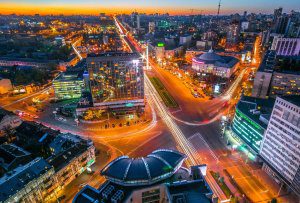
KYIV. March 2 (Interfax-Ukraine) – Some 300 km of roads will be repaired in Kyiv in 2017, the Kyiv mayor, head of Kyiv City State Administration Vitali Klitschko has promised.
“Some 300 km will be repaired in Kyiv – this is our task,” he said on the air of 1+1 TV Channel.
According to the mayor, the matter concerns a complete replacement of the roadway with a guarantee of five years.
Klitschko said the planned volume of roadway reconstruction is unprecedented.
The mayor stressed the construction of a new sewer collector line will be completed and the construction of the Podilsko-Voskresensky bridge will be resumed by the end of 2017. The bridge is to be completed in three years.
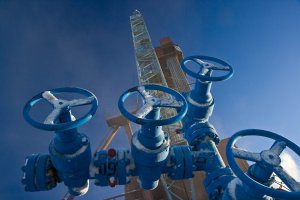
KYIV. March 2 (Interfax-Ukraine) – JKX Oil&Gas Plc plans capital investment of $660 million in development of the Rudenkivske field in Ukraine.
The full field development model for the Rudenkivske field includes the drilling of 135 wells over ten years and results in plateau production of approximately 110 million standard cubic feet per day (18,300 barrels of oil equivalent per day).
“The reconstruction of the Field Development Plan for Ukraine has revealed that using a modern, North American development approach for the Rudenkivske field could realize over $3 billion worth of gas sales at today’s prices,” the company said in a report on the London Stock Exchange (LSE) on Wednesday.
The Rudenkivske field is estimated to contain 2.8 trillion cubic feet of gas in place (2C).
“Using modern development and completion techniques could result in the production of as much as 600 billion cubic feet of gas over the field’s lifetime. Analogous fields to Rudenkivske’s structure and depositional environment in North America were identified and their experience and empirical data were used in the company’s planning,” the company said.
In addition, gas lift is currently being implemented at well NN16 to restore production and increase overall recovery on the field.
According to the report, Financing will continue to be a challenge for the company as well. Its development project in Ukraine is much bigger than its current market capitalization (GBP 51.41 million).
“We will have to be creative and aggressive in financing that development, and will be keeping shareholders informed in all cases and seeking their support and approval where appropriate,” JKX said.
As we obtain sources of financing for the Rudenkivske development, we will tighten our production targets and timing and keep you informed. Monetization of Russia, and perhaps Hungary, remain potential sources of funding for the core Ukrainian development plan,” the company said.
In Hungary, operations to sidetrack the Hn-2 well commenced in early December. In January, the sidetrack was successfully completed. Gas sales commenced in early February 2017 at an initial rate of 1.8 MMcfd, after a production and sales break in Hungary of more than three years. A reassessment of all of our Hungarian licenses is underway and a new Field Development Plan will be produced in the next few months.
In Russia, production remains stable with work-over and acid treatments required on a regular basis to combat harsh conditions in our 5,000m deep, high temperature, high pressure wells. The company will be replacing certain production strings with chrome tubing in 2017, at a cost of approximately $5 million. This will result in more stable production and an ability to increase production modestly by opening chokes due to better control of temperature-related string expansion.
For claims relating to 2010, amounting to approximately $10.6 million (including interest and penalties), Poltava Petroleum Company lost an appeal to the High Administrative Court of Ukraine and lost four appeals to the Supreme Court of Ukraine. It is currently engaged in appeal processes in the High Administrative Court and is considering the basis of a further appeal to the Supreme Court.
For claims related to 2015 of approximately $23.3 million, Poltava Petroleum Company is involved in proceedings in the Poltava District Administrative Court, which are temporarily suspended.
In respect of the company’s international arbitration against Ukraine to recover production related taxes, the tribunal ruled that Ukraine was found not to have violated its treaty obligations in respect of excessive levying of such taxes, but awarded the company damages of approximately $11.8 million plus interest and costs of $0.3 million in relation to subsidiary claims.
“While disappointed with the overall result, the conclusion of these proceedings presents an opportunity to draw a line under historical legal issues and engage with the Government of Ukraine to settle this award and the local tax issues and return focus to key operational matters. We have commenced this settlement process in earnest and in the meantime continue to defend our local legal cases,” JKX said.
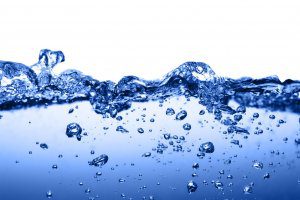
KYIV. March 2 (Interfax-Ukraine) – The European Bank for Reconstruction and Development (EBRD) is extending a $3 million loan to Ecosoft (Irpin, Kyiv region), the country’s leading producer of water purification equipment, in order to provide modern water treatment solutions for households and businesses in Ukraine, reads a bank press release.
“The investment will strengthen inclusion by providing customers with access to clean water at affordable rates. Inclusion is one of the six transition qualities defining the EBRD’s work. The bank believes that a well-functioning market economy should be competitive, inclusive, well-governed, green, resilient and integrated,” the report reads.
“A five-year loan will help the company to increase its production and storage capacity by purchasing additional injection moulding equipment. Ecosoft will also commission a new warehouse, improve its range of pitcher-type water filters and launch the production of reverse osmosis filtering membranes thus offering domestic customers an affordable high-tech alternative to imported water filters,” according to the document.
“The investment is supported by the European Union under the EU4Business Initiative which is designed to support small and medium-sized enterprises in the countries that will benefit from a Deep and Comprehensive Free Trade Area with the EU (DCFTA),” the bank stated.
“Ecosoft has been known to us since 2012 through our advisory program for small businesses. We are pleased to witness the progress and the expansion of this high-tech company, which is now exporting its filters to over 40 countries around the world. Customers will be able enjoy better-quality drinking water while spending less on its treatment,” EBRD Director for Ukraine Sevki Acuner said.
Ecosoft has benefited from support through the EBRD Small Business Impact Fund, which, with financial support from the United States, has provided $2 million to moderate the risks of EBRD investment in Ukraine.
The EBRD is the largest international financial investor in Ukraine. To date, the bank has made a cumulative commitment of almost EUR12.2 billion through 377 projects since the start of its operations in the country in 1993.
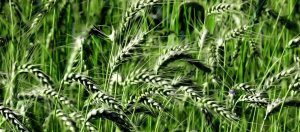
KYIV. March 2 (Interfax-Ukraine) – A trend of expanding areas with planted winter crops was seen in the past two or three years in Ukraine, Director General of the Ukrainian Agribusiness Club (UCAB) Taras Vysotsky has said.
“In the mid-2000s there was a trend of reducing the areas with winter crops in favor of spring crops, but five years ago this trend has been changed. Over the past two years winter crops started to return the lost ground,” UCAB said, citing Vysotsky.
He said that it is primarily due to the changes in climatic conditions, possibility of performing production operations in spring as well as stable profitability of winter crops.
“In the spring there are increasingly unfavorable conditions for sowing spring crops which does not allow completing sowing on time, and as you know, 10-15% of the yield depends on the timing of sowing. If you count the factors of the harvest shortfall, the profits of winter crops are more stable. Currently, we are witnessing the return of 10-15% of the areas with winter crops that were used to be sown with spring crops,” he said.
He also said that the figures of the two previous yields indicate that more and more companies are starting to consider wheat not as a part of the crop rotation and a possibility of paying rent fees to the landowners, but as a marginal crop. Farm businesses set goals to get as a minimum 6 tonnes per ha instead of 4 tonnes per ha.
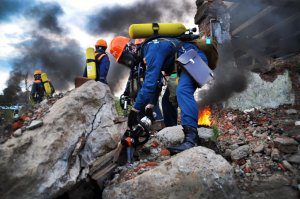
KYIV. March 2 (Interfax-Ukraine) – DEZEGA Holding Ukraine, the designer and producer of mine rescue equipment, has signed a contract with Buenaventura mining company (Peru, South America) to supply self-contained self-rescuers for workers of mines, the holding’s press service reported on Wednesday.
“This is the fifth continent where the international holding with Ukrainian roots brings new technologies. These are new frontiers for the national industry of Ukraine and the start of the use of self-rescuers for Peru,” the company said.
The press service said that the contract to supply self-rescuers for Buenaventura is the largest in the history of Peru. Its cost is not disclosed.
The press service told Interfax-Ukraine that a first batch of self-rescuers has been shipped to the customer.
According to the press release, South American countries use less effective filter respiratory protective equipment. Using DEZEGA self-contained self-rescuers, Peru is making significant progress in improving worker health and safety in mines. In contrast to the filtering respiratory protection equipment, the self-contained self-rescues completely isolate users from dangerous irrespirable environments.
“DEZEGA together with its representative in South America were able to prove the advantages of self-contained self-rescuers and won the tender. T holding had to compete in the tender with manufacturers from around the world: America, Germany, Poland and China, which in addition to the self-contained, actively promoted the filter respiratory protective equipment. Also DEZEGA products also use technically superior components while maintaining the best quality-to-price ratio,” the company said.
“This is a serious step for entering the South American market and the beginning of cooperation with leading mining companies in the region,” DEZEGA Board Chairman Anton Sakovych said.
According to DEZEGA Holding Ukraine, its global self-rescuers are used in over 40 countries. The company, headquartered in Kyiv, has official representative offices in five regions.
Buenaventura is engaged in mining and processing, and the development and exploration of gold, silver, coal, lead, zinc and other minerals.
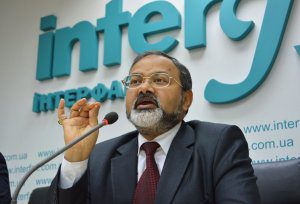
KYIV. March 1 (Interfax-Ukraine) – Some 21,000 tourists from Ukraine visited India in 2016, Ambassador of India to Ukraine Manoj Kumar Bharti has said.
“According to our information, in 2016, around 21,000 tourists from Ukraine visited India, including 18,000 who visited India under new “visa on arrival” rules. This means that the embassy issued only around 3,000 visas for special cases,” the ambassador said at a press conference at Interfax-Ukraine on Tuesday.
The diplomat said that everyone who wants to visit his country for the period of no more than 30 days are not obliged to come to the embassy and receive visas. It is enough to fill in the form on the website.
“Visa will be issued on the arrival for the period of up to 29 days. I am glad to say that this service will be improved in two months,” Bharti said.
He said that the key tourists’ destinations last year were Goa and Kerala beaches for beach holidays and Varanasi, Rishikesh and Hyderabad for tourists interested in Indian culture, history and philosophy.
He said that Indian tourists do not visit Ukraine due to the complicated visa registration procedure.
“At present, according to my information, there is no tourist from India. Students from India or Indian citizens and members of their families and friends come here. The main problem is the visa. It is hard to receive it. India has introduced the visa on arrival that has been in effect for six months. We would like Ukraine make counter moves,” he said.
Bharti said that Indian tourists could bring around $37 million to the Ukrainian economy.